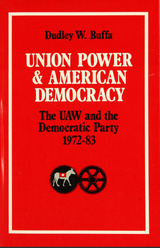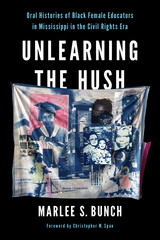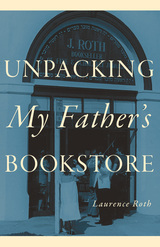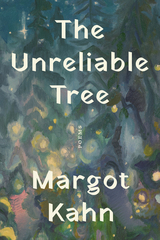5 books about Life Death

Águila
The Vision, Life, Death, and Rebirth of a Two-Spirit Shaman in the Ozark Mountains
María Cristina Moroles
University of Arkansas Press, 2024
In Águila: The Vision, Life, Death, and Rebirth of a Two-Spirit Shaman in the Ozark Mountains, María Cristina Moroles traces the path of her extraordinary life from the streets of Dallas to the wilderness of the Arkansas Ozarks, where she has resided for fifty years. Hailing from a large Indigenous and Mexican American family in Texas, Moroles apprentices herself to healers and shamans across the Americas as she follows the spiritual vision that leads her to establish a mountaintop sanctuary for women and children of color in a notoriously insular location in the Ozark Mountains. This is a survivor’s tale, and a back-to-the-lander’s tale, unlike any other. From early traumas to countercultural rebellion and profound spiritual awakening, Moroles recounts milestones that earn her the ceremonial names SunHawk and Águila, as she builds a sustainable community off the grid, atop a mountain otherwise uninhabited by human life. Águila tells the truth of one woman’s search for freedom and all women’s quest for dignity as it celebrates the healing powers of nature.
[more]
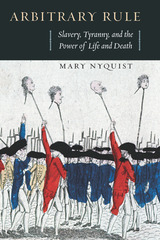
Arbitrary Rule
Slavery, Tyranny, and the Power of Life and Death
Mary Nyquist
University of Chicago Press, 2013
Slavery appears as a figurative construct during the English revolution of the mid-seventeenth century, and again in the American and French revolutions, when radicals represent their treatment as a form of political slavery. What, if anything, does figurative, political slavery have to do with transatlantic slavery? In Arbitrary Rule, Mary Nyquist explores connections between political and chattel slavery by excavating the tradition of Western political thought that justifies actively opposing tyranny. She argues that as powerful rhetorical and conceptual constructs, Greco-Roman political liberty and slavery reemerge at the time of early modern Eurocolonial expansion; they help to create racialized “free” national identities and their “unfree” counterparts in non-European nations represented as inhabiting an earlier, privative age.
Arbitrary Rule is the first book to tackle political slavery’s discursive complexity, engaging Eurocolonialism, political philosophy, and literary studies, areas of study too often kept apart. Nyquist proceeds through analyses not only of texts that are canonical in political thought—by Aristotle, Cicero, Hobbes, and Locke—but also of literary works by Euripides, Buchanan, Vondel, Montaigne, and Milton, together with a variety of colonialist and political writings, with special emphasis on tracts written during the English revolution. She illustrates how “antityranny discourse,” which originated in democratic Athens, was adopted by republican Rome, and revived in early modern Western Europe, provided members of a “free” community with a means of protesting a threatened reduction of privileges or of consolidating a collective, political identity. Its semantic complexity, however, also enabled it to legitimize racialized enslavement and imperial expansion.
Throughout, Nyquist demonstrates how principles relating to political slavery and tyranny are bound up with a Roman jurisprudential doctrine that sanctions the power of life and death held by the slaveholder over slaves and, by extension, the state, its representatives, or its laws over its citizenry.
[more]
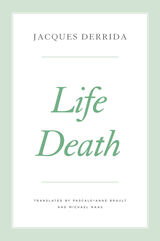
Life Death
Jacques Derrida
University of Chicago Press, 2020
The seventh in our series of Derrida's seminars, Life Death provides interdisciplinary reflections on the relationship of life and death—now in paperback.
One of Jacques Derrida’s most provocative works, Life Death deconstructs a deeply rooted dichotomy of Western thought: life and death. In rethinking the relationship between life and death, Derrida undertakes a multi-disciplinary analysis of a range of topics across philosophy, linguistics, and the life sciences. Derrida gave this seminar over fourteen sessions between 1975 and 1976 at the École normale supérieure in Paris to prepare students for the agrégation, a notoriously competitive exam. The theme for the exam that year was “Life and Death,” but Derrida made a critical modification to the title by dropping the coordinating conjunction. The resulting title of Life Death poses a philosophical question about the close relationship between life and death. Through close readings of Freudian psychoanalysis, the philosophy of Nietzsche and Heidegger, French geneticist François Jacob, and epistemologist Georges Canguilhem, Derrida argues that death must be considered neither as the opposite of life nor as the truth or fulfillment of it, but rather as that which both limits life and makes it possible. Derrida thus not only questions traditional understandings of the relationship between life and death but also ultimately develops a new way of thinking about what he calls “life death.”
One of Jacques Derrida’s most provocative works, Life Death deconstructs a deeply rooted dichotomy of Western thought: life and death. In rethinking the relationship between life and death, Derrida undertakes a multi-disciplinary analysis of a range of topics across philosophy, linguistics, and the life sciences. Derrida gave this seminar over fourteen sessions between 1975 and 1976 at the École normale supérieure in Paris to prepare students for the agrégation, a notoriously competitive exam. The theme for the exam that year was “Life and Death,” but Derrida made a critical modification to the title by dropping the coordinating conjunction. The resulting title of Life Death poses a philosophical question about the close relationship between life and death. Through close readings of Freudian psychoanalysis, the philosophy of Nietzsche and Heidegger, French geneticist François Jacob, and epistemologist Georges Canguilhem, Derrida argues that death must be considered neither as the opposite of life nor as the truth or fulfillment of it, but rather as that which both limits life and makes it possible. Derrida thus not only questions traditional understandings of the relationship between life and death but also ultimately develops a new way of thinking about what he calls “life death.”
[more]
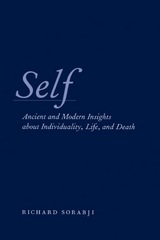
Self
Ancient and Modern Insights about Individuality, Life, and Death
Richard Sorabji
University of Chicago Press, 2006
Drawing on classical antiquity and Western and Eastern philosophy, Richard Sorabji tackles in Self the question of whether there is such a thing as the individual self or only a stream of consciousness. According to Sorabji, the self is not an undetectable soul or ego, but an embodied individual whose existence is plain to see. Unlike a mere stream of consciousness, it is something that owns not only a consciousness but also a body.
Sorabji traces historically the retreat from a positive idea of self and draws out the implications of these ideas of self on the concepts of life and death, asking: Should we fear death? How should our individuality affect the way we live? Through an astute reading of a huge array of traditions, he helps us come to terms with our uneasiness about the subject of self in an account that will be at the forefront of philosophical debates for years to come.
“There has never been a book remotely like this one in its profusion of ancient references on ideas about human identity and selfhood . . . . Readers unfamiliar with the subject also need to know that Sorabji breaks new ground in giving special attention to philosophers such as Epictetus and other Stoics, Plotinus and later Neoplatonists, and the ancient commentators on Aristotle (on the last of whom he is the world's leading authority).”—Anthony A. Long, Times Literary Supplement
[more]

Whampoa and the Canton Trade
Life and Death in a Chinese Port, 1700–1842
Paul A. Van Dyke
Hong Kong University Press, 2020
Paul A. Van Dyke’s new book, Whampoa and the Canton Trade: Life and Death in a Chinese Port, 1700–1842, authoritatively corrects misconceptions about how the Qing government treated foreigners when it controlled all trade in the Guangzhou port. Van Dyke reappraises the role of Whampoa in the system—a port twenty kilometres away from Guangzhou—and reassesses the government’s attitude towards foreigners, which was much more accommodating than previous research suggested. In fact, Van Dyke shows that foreigners were not bound by local laws and were given freedom of movement around Whampoa and Canton to the extent that they were treated with leniency even when found in off-limit places. Whampoa and the Canton Trade recounts the lives of seamen who travelled half-way around the globe at great risk and lived through a historic period that would become the framework for subsequent encounters between China and the rest of the world. Were it not for the exchanges between the major powers and the Qing empire, the world—as we know it—would be a rather different place. Hence, Van Dyke’s command of data mining shows that Whampoa was a key pillar in the Canton System and, thus, in the making of the modern world economy.
[more]
READERS
Browse our collection.
PUBLISHERS
See BiblioVault's publisher services.
STUDENT SERVICES
Files for college accessibility offices.
UChicago Accessibility Resources
home | accessibility | search | about | contact us
BiblioVault ® 2001 - 2025
The University of Chicago Press


